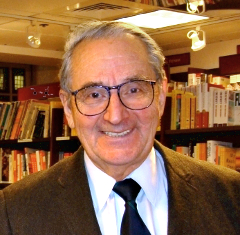A Quote by Patrick O'Brian
The function of the novel is the exploration of the human condition. Really, that's what it's all about.
Quote Topics
Related Quotes
One of the things I admire so much about Atom Egoyan is that again and again he makes movies about the human condition, who we are, what we want, how we communicate to one another and this is also an exploration of a long-term relationship and what happens in it. There's human sexuality and all those kinds of things, so that helps - it all helps. You realise that I'm not a Playboy bunny.
My motivation is to get a deeper understanding and exploration of something that I want to know about the human condition. So, that's what I look for in the material I read: if it's asking a genuine question about a concept of the world that interests me. And also, it helps if it's a context that I find interesting.
The very function of creativity, of the elaboration of the human condition only enlarges the human spirit and, I mean, as a writer I don't want to read political literature all the time. It would be terribly boring and, you know, abrasive, but just reading the insights, you know, partaking of the insights of a writer into phenomena, into society, into human relationships, both on a micro level and on a macro level, is already a function.
It is fortunate that molecular synthesis also serves the utilitarian function of producing quantities of rare or novel substances which satisfy human needs, especially with regard to health, and the scientific function of stimulating research and education throughout the whole discipline of chemistry.
The point is, that the function of the novel seems to be changing; it has become an outpost of journalism; we read novels for information about areas of life we don't know - Nigeria, South Africa, the American army, a coal-mining village, coteries in Chelsea, etc. We read to find out what is going on. One novel in five hundred or a thousand has the quality a novel should have to make it a novel - the quality of philosophy.
The novel has become a function of the fragmented society, the fragmented consciousness. Human beings are so divided, are becoming more and more divided, and more subdivided in themselves, reflecting the world, that they reach out desperately, not knowing they do it, for information about other groups inside their own country, let alone about groups in other countries. It is a blind grasping out for their own wholeness, and the novel-report is a means toward it.
I'm really hopeful about the future of space exploration and human spaceflight. Civilization as we know it has been defined by exploration. You know, we need to go off and find out what's around the next corner and what's just beyond what we already know. It's part of our being; it's part of our moral fiber to go off and explore.
What art should be about,' they will say, 'is revealing exquisite and resonant truths about the human condition.' Well, to be honest - no, it shouldn’t. I mean, it can occasionally, if it wants to; but really, how many penetrating insights to human nature do you need in one lifetime? Two? Three? Once you’ve realised that no one else has a clue what they’re doing, either, and that love can be totally pointless, any further insights into human nature just start getting depressing really.






































